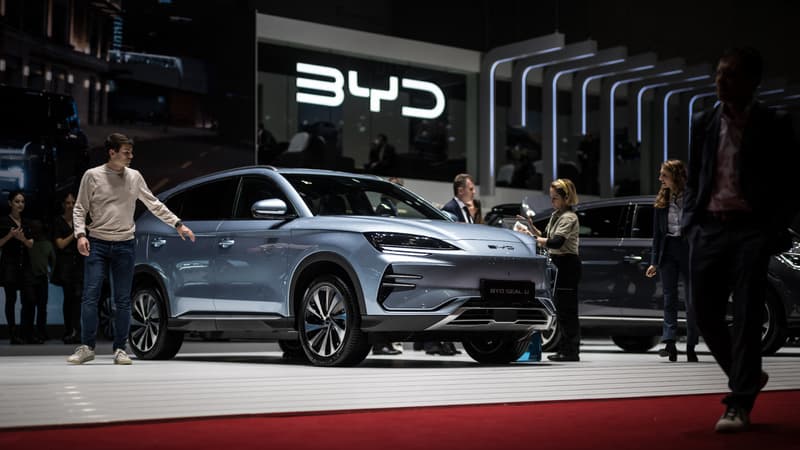The Chinese electric vehicle giant BYD announced this Wednesday, October 30, a new increase in its sales, surpassing its global rival Tesla for the first time in terms of quarterly turnover.
BYD (“Build Your Dreams”) is the leading manufacturer of electric vehicles in China, the world’s largest automobile market, and also a giant in battery production.
Tesla remains at the top in net profit…
The Shenzhen-based company posted revenue of 201.12 billion yuan (or $28.24 billion) in the third quarter, up 24 percent from the same period last year. An amount higher than the $25.2 billion announced by the American Tesla last week.
BYD’s net profit during this period amounted to 11.6 billion yuan ($1.6 billion), up 11.5 percent from the third quarter of last year.
Tesla surprised by announcing an increase in its profits in the third quarter, highlighting a cost price per vehicle at historic lows, a measure aimed at fighting its competitors, including BYD.
Elon Musk’s company (the billionaire also owns the social network X and the space company SpaceX) announced a net profit of 2.18 billion dollars (+17% in one year).
The expansion of Chinese automakers, particularly in the electrical sector, facilitated in part by generous subsidies provided by Beijing, is increasingly threatened by trade conflicts between China and the West.
…and in the sale of electric cars
In total, during this period from July to September, BYD sold 1,134,892 units, this is the first time that the Chinese manufacturer has surpassed this milestone of one million sales in a quarter.
But the brand sells both plug-in hybrids (or PHEV) and 100% electric vehicles. In this second category, BYD sold 443,426 units, slightly less than Tesla, with 462,980 deliveries in this third quarter of 2024.
Intensification of fighting
The European Commission on Tuesday adopted a regulation imposing additional customs duties on electric cars imported from China, accused of unfair competition.
The EU will impose additional customs duties of up to 35.3% on Chinese electric vehicles (17% for BYD), a measure described by Trade Commissioner Valdis Dombrovskis as a “defence of fair manufacturing practices and the European industrial base”.
Beijing denounced the measures on Wednesday, saying it had filed a complaint with the World Trade Organization (WTO) and vowed to “take all necessary measures to firmly protect the legitimate rights and interests of Chinese companies.”
At the beginning of the year, the United States and Canada increased customs duties on Chinese electric vehicles to 100%.
In China, sales of electric and hybrid vehicles accounted for more than half of domestic sales for the first time in July, according to the China Association of Automobile Manufacturers.
BYD, which originally specialized in battery design and production, diversified into the automotive industry in 2003.
The highly competitive electric vehicle sector in China, with a multitude of manufacturers, is immersed in a fierce price war that is weighing on profitability.
BYD said in a first-half earnings report this year that it had “effectively managed the challenges posed by intensifying industrial competition.”
BYD has also stepped up its globalization efforts, with plans to open factories in Hungary and Türkiye.
Source: BFM TV


